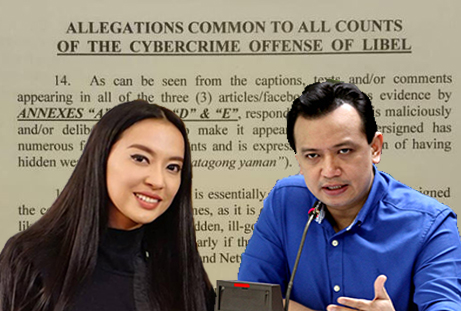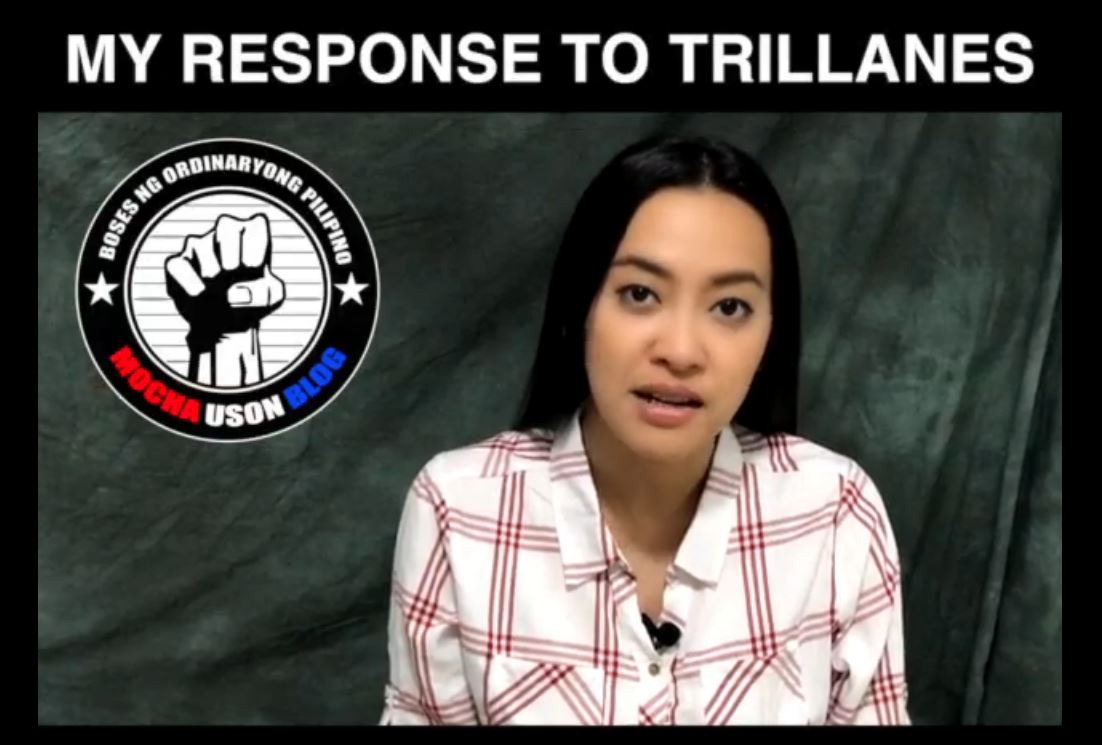Sen. Antonio Trillanes IV on Sept. 22 filed before the Ombudsman three counts of online libel against Communications Assistant Secretary Margaux Uson, accusing her of spreading “false and malicious” allegations.
The senator complained that Uson “maliciously” tried to depict him as being corrupt by sharing on Facebook fabricated details of his supposed offshore accounts.
Libel is a crime under the Revised Penal Code. Online libel, introduced by the Cybercrime Prevention Act of 2012, is an expansion of the same crime for publications on the internet.
Malice — along with defamation, publication and identifiability of the person defamed — is one of the four elements of libel.
All four must be satisfied for the crime to be proven in court.
When is a statement deemed malicious?
Malice “connotes ill will or spite” and “implies an intention” to do harm, according to the Supreme Court in a 2009 ruling.
It comes in two forms: malice in law and malice in fact.
Malice in law is malice that does not need to be proven in court. It is malice automatically presumed for every defamatory statement, and applies when complainants are private persons.
In contrast, malice in fact is malice that needs to be proven in court. It applies when libel complainants are public figures, who need to show that defamatory statements made against them were motivated by a “positive desire and intention” to do harm.
Explaining the stricter standard of malice for public figures, the Supreme Court in a 1999 decision cited a 1918 case and noted:
“Complete liberty to comment on the conduct of public men is a scalpel in the case of free speech. The sharp incision of its probe relieves the abscesses of officialdom. Men in public life may suffer under a hostile and unjust accusation; the wound may be assuaged by the balm of a clear conscience. A public official must not be too thin-skinned with reference to comments upon his official acts.”
Sources:
Complaint affidavit of Sen. Antonio Trillanes IV
Section 4(c)(4), Chapter II of the Cybercrime Prevention Act of 2012
G.R. No. 126466. Borjal v. CA
G.R. No. 184315. Yuchengco v. Manila Chronicle
(1930). Crime Against Honor. In Cruz (Ed.), The Revised Penal Code with Related Laws, Fourth Edition (p. 144). Quezon City: UP Law Complex.
Interview with lawyer Marlon Anthony Tonson, Philippine Internet Freedom Alliance
(Guided by the code of principles of the International Fact-Checking Network at Poynter, VERA Files tracks the false claims, flip-flops, misleading statements of public officials and figures, and debunks them with factual evidence. Find out more about this initiative.)




